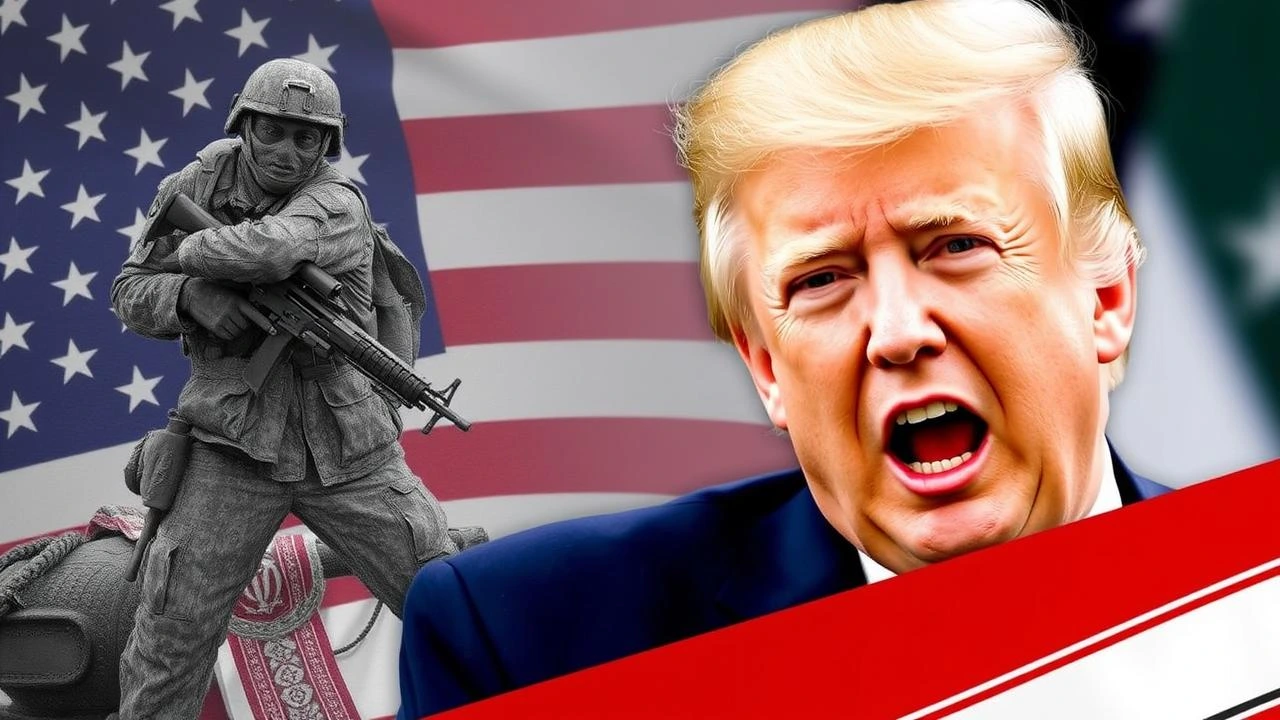The increasingly complex geopolitical landscape has brought the United States to a pivotal juncture regarding its military involvement in Iran. Under the administration of former President Donald Trump, the question of whether to deploy ground troops has been a subject of intense debate. With rising tensions in the Middle East, it becomes essential to analyze the implications, potential consequences, and moral considerations of such a decision.
Context of U.S.-Iran Relations
The long, contentious history between the United States and Iran is marked by numerous conflicts and a fractious diplomatic relationship. Following the Islamic Revolution of 1979, the U.S. and Iran entered a protracted standoff characterized by mutual distrust and hostility. The Joint Comprehensive Plan of Action (JCPOA) in 2015 briefly thawed relations but was subsequently abandoned by Trump in 2018, reinstating crippling sanctions against Iran. Since then, incidents such as the assassination of Iranian general Qassem Soleimani in January 2020 have escalated hostilities, raising questions about military intervention.
The Argument for Deploying Ground Troops
Advocates for deploying ground troops in Iran argue that such action could serve multiple purposes:
- Deter Aggression: A visible American presence could deter further hostile actions by Iran, including its influence in the region.
- Support Regional Allies: Troops could be deployed to support allies in the region, such as Israel and Saudi Arabia, who fear Iranian expansionism.
- Counterterrorism Operations: Ground forces could be pivotal in combating terrorist organizations that threaten both American interests and regional stability.
- Humanitarian Relief: In the wake of increased governmental repression, a military presence could also facilitate humanitarian efforts in the country.
The Counterarguments Against Military Engagement
Despite the potential benefits posited by advocates, a multitude of counterarguments exists that caution against the decision to send troops into Iran:
- Escalation of Conflict: Deploying troops could lead to an escalation of military conflict, pulling the U.S. into a war that may not have a clear endpoint.
- Quagmire Risks: The U.S. military has faced challenges in Iraq and Afghanistan that highlight the risks of becoming enmeshed in prolonged conflicts.
- Diplomatic Alternatives: Critics argue that diplomatic measures could be more effective and sustainable in addressing U.S. concerns about Iran’s nuclear ambitions and regional activities.
- Domestic Consequences: Increased military engagement could inflame anti-American sentiment and complicate relationships with key allies.
A Cost-Benefit Analysis
In considering whether to deploy troops in Iran, it is crucial to conduct a comprehensive cost-benefit analysis. Below is a table summarizing the potential risks and rewards of military intervention.
| Consideration | Potential Benefits | Potential Risks |
|---|---|---|
| Military Resolution | Quick resolution of threats | Prolonged conflict and occupation |
| Regional Stability | Strengthening of U.S. allies | Destabilization of the region |
| Counterterrorism | Effective action against extremist groups | Risk of civilian casualties |
| Humanitarian Aid | Improved conditions for civilians | Possible backlash against U.S. involvement |
| International Standing | Enhanced credibility in protecting allies | Erosion of global partnerships |
“War is a series of catastrophes that results in a victory.” – Georges Clemenceau
Ethical Considerations
The morality of military intervention is another vital aspect of this discussion. It is essential to evaluate the ethical implications surrounding such actions:
- Just War Theory: This philosophical framework may guide decision-making processes, outlining conditions under which military action could be justified.
- Collateral Damage: The impact on civilian populations should always be a primary consideration, urging decision-makers to explore non-military solutions first.
- Global Responsibility: As the world’s most powerful nation, the U.S. bears a responsibility for maintaining international order without unnecessary violence.
Conclusion
The dilemma of whether to deploy U.S. troops in Iran is laden with complexities. While there are arguments supporting military intervention as a means to deter threats, protect allies, and stabilize the region, the potential for escalation and long-term quagmires cannot be overlooked. A thorough evaluation of both military and diplomatic options, combined with ethical considerations, is essential in guiding the future course of U.S. foreign policy in Iran.
Frequently Asked Questions (FAQs)
1. What are the main reasons for considering military action in Iran?
Military action is considered mainly for deterrence against Iranian aggression, support for regional allies, and counterterrorism operations.
2. What are the risks associated with sending troops to Iran?
Risks include the potential for escalating conflict, becoming mired in a quagmire, causing civilian casualties, and exacerbating anti-American sentiment.
3. How could diplomatic alternatives be effective?
Diplomatic measures, through negotiations and sanctions, can address concerns regarding nuclear proliferation and influence without the risks associated with military action.
4. What role do U.S. allies play in this decision?
U.S. allies provide critical context regarding regional stability and security perceptions, influencing whether military action is deemed necessary or advisable.
5. What impact could military intervention have on U.S. relations with other countries?
Military intervention could either strain or strengthen relations with other nations depending on the outcomes and the perception of U.S. intentions in the region.
In navigating this treacherous terrain, a careful blend of diplomacy, strategy, and ethical consideration must guide any final decisions affecting America’s military future in Iran.
Donald Trump’s war dilemma: Should America put boots on the ground in Iran or not?






